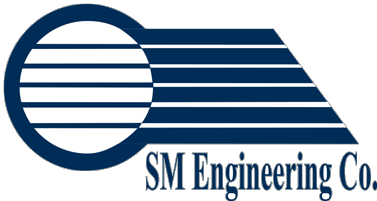Stone, Clay, Glass, & Concrete Product Manufacturers
Helping Businesses Reduce Electric and Natural Gas Costs Get StartedReduce Electric and Gas Costs & Impact Your Bottom Line
Manufacturers in the stone, clay, glass, and concrete industries often face high energy demands due to the nature of their production processes. The energy required to extract, process, and shape raw materials can significantly impact your utility bills. But did you know that you could be spending more than you need to on utilities?
It’s time to take control of your utility costs and unlock potential savings. SM Engineering can help you reduce energy costs and save valuable resources.
U.S. Companies Producing Stone, Clay, Glass & Concrete Products
Around 22,000 companies across the United States are involved in producing stone, clay, glass, and concrete products. This includes the following industry groups:
- Flat Glass
- Glass And Glassware, Pressed Or Blown
- Glass Products, Made Of Purchased Glass
- Cement, Hydraulic
- Structural Clay Products
- Pottery And Related Products
- Concrete, Gypsum, And Plaster Products
- Cut Stone And Stone Products
- Abrasive, Asbestos, And Miscellaneous Nonmetallic Mineral Products

Why Stone, Clay, Glass, and Concrete Industries Use So Much Energy
Each of these manufacturing processes requires substantial energy due to the high temperatures, equipment, and labor-intensive steps involved. Here are some facts about why your business may be consuming more energy than you realize:
Stone Production
- Extraction and Processing: Stone quarries need large amounts of energy to extract and transport raw stone materials, often using heavy machinery and blasting techniques.
- Cutting and Shaping: Cutting and shaping stone into slabs or tiles require powerful saws, grinders, and polishing machines that consume a lot of electricity.
- Kilns and Ovens: While some stone products don’t require high temperatures, certain types, such as limestone, need to be heated to very high temperatures (around 900-1,000°C) to produce lime.
Clay and Brick Manufacturing
- Firing Kilns: The firing process, where clay is baked at extremely high temperatures (around 1,000–1,200°C), consumes substantial amounts of energy. Kilns are one of the largest energy expenses in clay and brick production.
- Drying: Before firing, clay products must be dried thoroughly to remove moisture. The drying process involves heated air or gas, requiring additional energy.
- Forming and Molding: The shaping of clay products using molding machines and presses also requires mechanical energy to produce a high volume of bricks or tiles.
Glass Production
- Melting Glass: The glass manufacturing process involves melting raw materials (sand, soda ash, and limestone) in furnaces at temperatures above 1,600°C, consuming large amounts of energy, typically through natural gas or electricity.
- Forming and Shaping: After melting, the glass must be formed into products like bottles, windows, and containers. The molding, blowing, and forming processes require additional energy inputs to maintain precise temperatures and molds.
- Annealing: The cooling or annealing process in glass production, which ensures the glass cools at a controlled rate to prevent breakage, also requires significant energy.
Concrete Production
- Cement Kilns: Producing cement, the primary ingredient in concrete, is an energy-intensive process. Cement kilns operate at temperatures between 1,400 and 1,500°C, requiring massive amounts of energy, typically derived from coal or natural gas.
- Mixing and Transporting: Once cement is produced, it must be mixed with water, sand, and aggregates to create concrete. This requires mixing equipment, trucks, and additional energy to transport the mixture to construction sites.
- Curing: Concrete needs time to cure and harden, often requiring controlled conditions in large curing chambers, which may also use energy for temperature and humidity control.
Could industrial energy inefficiency be robbing your business of valuable resources and profits?

Why Should You Review Your Utility Bills?
SM Engineering’s comprehensive utility auditing, rate analysis, and cost-saving recommendations help you reduce energy costs, choose better services, and even get refunds for overpayments. Here’s a breakdown of common issues to watch for:
- Billing Errors (Meter Readings, Estimated Billings, Faulty Equipment)
- Misapplied Fees (Demand Charges, Fixed Fees, Etc.)
- Outdated Rate Plans and Tariffs (Time of Use Rates, Tiered Rates, Demand Response Programs)
Our recommendations are intended solely to assist you in reducing costs and do not involve any sales of equipment or requests for operational changes.
- Find the best utility rates
- Get refunds for overcharges
- Enjoy monitoring for continued savings
Why Trust SM Engineering?
SM Engineering Co is a reputable engineering consulting firm with a rich history of over 45 years in effectively reducing utility costs. Our specialized knowledge lies in finding ways to minimize utility expenses without changing consumption patterns.
Through comprehensive audits of utility costs, we can recommend beneficial rate changes that can result in cost savings for our clients. Additionally, we work diligently to secure refunds for any overpayments made by customers in Minnesota, Wisconsin, Indiana, Iowa, Kansas, Missouri, Arizona, Texas, and North Carolina to name a few.
Have Your Bills Reviewed Today
How do you ensure you choose the right utility rate and not overpay for your expenses? Contact SM Engineering Company for a complimentary professional utility rate analysis. It all begins with providing us with a copy of your current monthly utility bill. Our team will get back to you within 48 hours with the results and our recommendations on how to proceed.
Our recommendations are intended solely to assist you in reducing costs and do not involve any sales of equipment or requests for operational changes.
Our professional team is dedicated to assisting businesses in identifying billing errors, obtaining refunds, and significantly reducing annual utility costs. This opportunity entails no obligations, just valuable opportunities to save. Contact us today to learn more and schedule a FREE review.
Start Saving Today!

